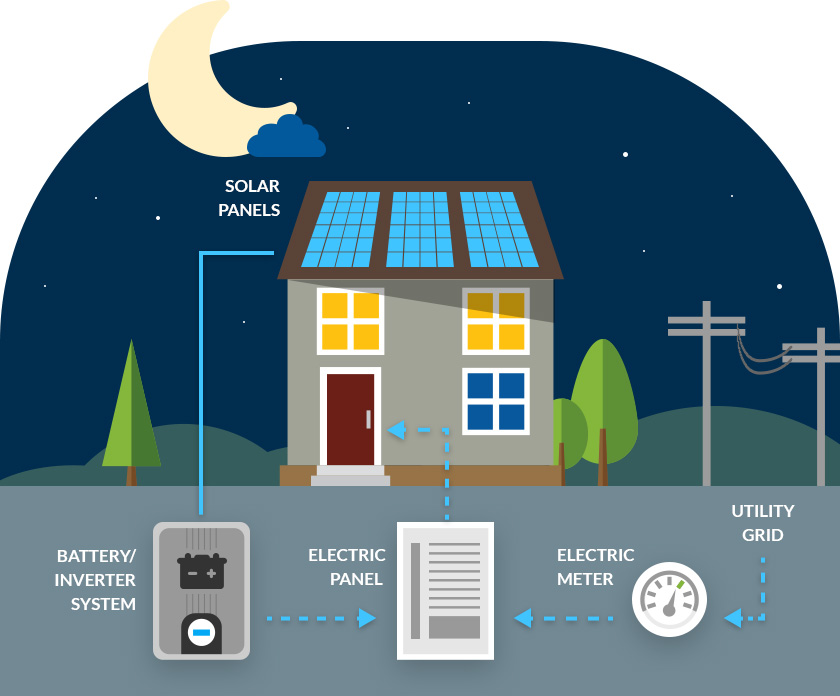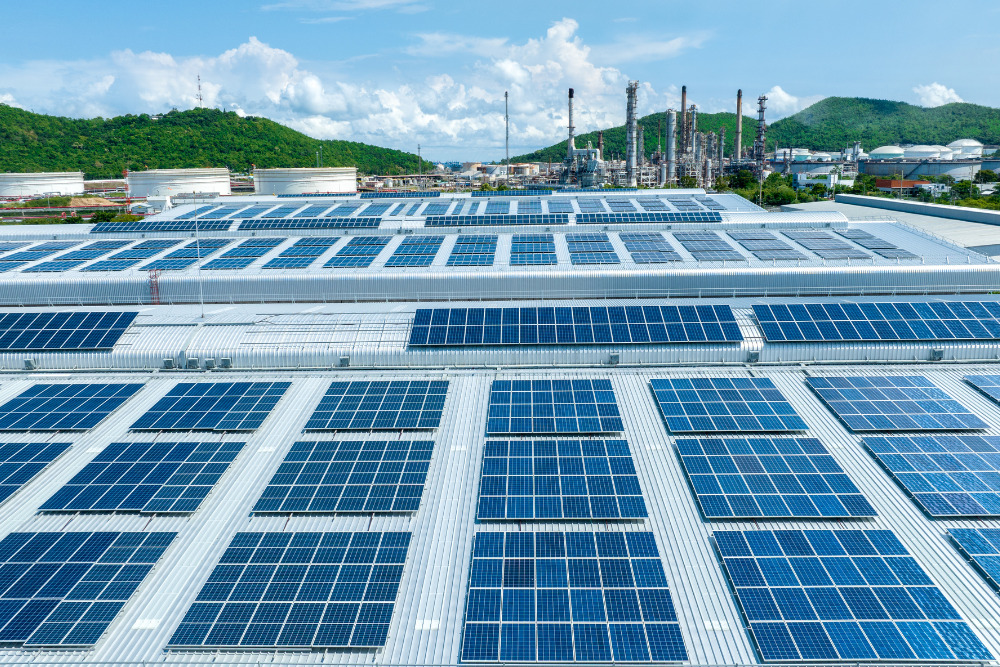Virginia Solar Providers: Lumina Solar Focuses On Offering Advanced Photovoltaic Solutions For Houses And Services
History and Founding
Have you ever wondered how a solar panel business springs from a simple spark of motivation into a powerhouse of sustainable energy? It typically begins with a vision-- one fueled by a mix of innovation, determination, and a pinch of serendipity. The journey of many solar companies mirrors the advancement of the technology itself: from bulky, inefficient panels to sleek, high-efficiency marvels harnessing the sun's bounty.
The Early Days
In the late 20th century, when solar energy was still a niche idea, leaders planted seeds for what would end up being an international movement. Picture a little workshop filled with curious engineers, relentlessly exploring with photovoltaic cells. Their passion was palpable, frequently driven by a desire to combat climate modification and lower reliance on nonrenewable fuel sources.
One such anecdote has to do with a creator who, motivated by an outdoor camping journey, understood that even in remote locations, the sun might power essential devices. This simple observation sparked a company's mission to democratize access to tidy energy.
Founding Principles

- Innovation: Constantly pressing the borders of solar innovation to improve efficiency and durability.
- Sustainability: Dedicating to environment-friendly production and reducing carbon footprints.
- Accessibility: Making renewable resource options budget-friendly and useful for daily users.
Milestones in Growth
| Year | Secret Occasion |
|---|---|
| 1985 | Company founded in a little garage, concentrating on research and development. |
| 1995 | First industrial photovoltaic panel item introduced, acquiring regional attention. |
| 2005 | Broadened to worldwide markets, welcoming global sustainable energy objectives. |
| 2015 | Presented innovative photovoltaic panel innovation with enhanced energy conversion. |
Isn't it remarkable how these incremental actions, often overlooked, shape the energy landscape today? The photovoltaic panel company story is not practically innovation; it's about an unrelenting mission for a brighter, cleaner future.

Developments in Photovoltaic Panel Technologies
Ever noticed how some solar panels gleam brighter and last longer? It's not magic; it's the science of photovoltaic performance. Modern photovoltaic panel business invest heavily in innovations like bifacial cells, which catch sunlight from both sides, boosting energy harvest without expanding roof space. Have you ever wondered why some panels perform much better on cloudy days? That is because of advances in thin-film solar technology, which prospers under diffused light conditions.
Item Variations Tailored to Unique Needs
One size never fits all. Solar panel suppliers now provide:
- Monocrystalline panels for maximum performance and smooth aesthetics, perfect for space-constrained roofs.
- Polycrystalline panels, which offer a cost-effective alternative without compromising too much output.
- Building-integrated photovoltaics (BIPV), combining solar tech perfectly into architectural components like windows and facades.
Choosing the right product isn't practically in advance cost; it's about matching your environment, energy goals, and long-term savings. Homes shaded by trees require panels that stand out in low-light circumstances, something many neglect till energy bills climb suddenly.
Technical Tips for Optimal Selection
- Examine the temperature coefficient-- lower values indicate panels lose less effectiveness on hot days.
- Try to find panels with enhanced anti-reflective coatings to make the most of light absorption.
- Think about the panel's guarantee not simply for defects, but for ensured power output over years.
- Don't ignore the importance of the inverter innovation matched with the panels; it can make or break your system's performance.
Beyond Panels: Emerging Patterns
Think of solar panels that change their angle instantly to chase the sun-- tracking systems are becoming more available, increasing yield considerably. Or solar tiles that blend invisibly into your roofline, changing your home into a silent, self-dependent power generator. These developments are reshaping what a solar panel company uses-- not just products, however incorporated energy services.
Market Existence and Global Operations
Ever wonder why some solar panel companies seem to sprout up in every corner of the globe while others hardly make a ripple? The difference lies not simply in innovation but in mastering the art of browsing diverse markets. Expanding internationally resembles planting seeds in various environments-- you should understand each environment's unique conditions to thrive.
Take, for instance, the detailed dance of logistics and supply chain management. Shipping panels halfway throughout the world isn't just about range; it has to do with timing, custom-mades, tariffs, and adjusting to local demand variations. A company with robust international operations anticipates these variables, making sure panels get here on schedule without inflating costs. This foresight is no little feat and frequently separates industry leaders from followers.
Key Techniques for Expanding Market Existence
- Localized manufacturing: Establishing production centers near target audience reduces shipping hold-ups and import intricacies.
- Strategic collaborations: Teaming up with regional companies accelerates market penetration and constructs trust.
- Adaptive item style: Tailoring photovoltaic panel tech to weather, sun intensity, and facilities subtleties boosts performance and approval.
What about the human element? Photovoltaic panel companies running internationally need to reconcile cultural distinctions and regulatory nuances without forgeting their core objective. For instance, what operate in a sun-drenched desert may fail in a humid coastal area. In some cases, the most ingenious option is simply listening-- taking in local insights to fine-tune innovation and approach.
Specialists frequently recommend a phased rollout instead of a shotgun growth. Why run the get more info risk of overextension when measured development develops sustainable momentum? Scaling wisely means balancing ambition with functional durability - Solar Panel Company. After all, in the race for sustainable energy dominance, persistence can be as valuable as speed
Environmental Effect and Sustainability Practices
When solar panels first emerged, numerous presumed they brought no ecological baggage. The reality is more nuanced. The production of solar batteries includes rare earth metals and energy-intensive processes, which can leave a substantial carbon footprint before the panels even reach rooftops. The real environmental expense depends greatly on the sustainability practices used by the solar panel company throughout the lifecycle of their products.
How typically do we pause to consider what occurs to photovoltaic panels at the end of their helpful life? Unlike batteries or electronic devices, photovoltaic panels can last 25-30 years, however disposal and recycling pathways stay underdeveloped in many areas. A business dedicated to decreasing environmental damage will have a robust plan for recycling photovoltaic products, salvaging important silicon, glass, and metals to avoid landfill accumulation.
Key Sustainability Techniques
- Utilizing low-impact production methods that reduce water and energy usage.
- Carrying out closed-loop systems to recycle production waste back into new panels.
- Participating in transparent supply chain audits to make sure ethical sourcing of raw materials.
- Creating panels for much easier disassembly to help future recycling efforts.
It deserves noting that some solar business have originated ingenious approaches, such as incorporating biodegradable elements or utilizing less poisonous chemicals during fabrication. This not only decreases ecological strain however likewise sets a precedent for the market. The question remains: can the solar market really pivot towards a circular economy model without compromising performance or affordability?
Specialist Tips for Evaluating Sustainability
- Ask about the business's dedication to carbon-neutral manufacturing and whether they offset emissions.
- Investigate if they partner with accredited recycling centers devoted to solar panel waste.
- Try to find openness reports detailing environmental effects and sustainability goals.
- Consider the durability and warranty of panels as an indirect measure of resource efficiency.
In the end, choosing solar energy ought to mean more than just slashing electrical power expenses; it's about nurturing a future where energy is collected properly and waste is attentively managed. Solar panel companies that accept this approach not just light up homes however likewise cast a brighter light on sustainable innovation.
Comments on “Some Known Details About Best Solar Panel Company Virginia ”